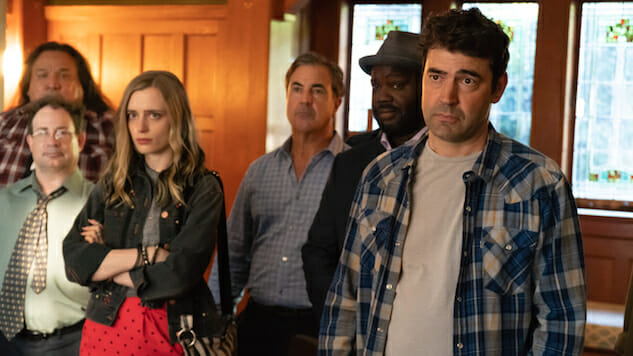With Loudermilk, Ron Livingston and the Farrelly Brothers Rethink the Misanthropic Comedy
Photo: Audience Network
After weeks of smoke from the season’s wildfires, it’s an immaculate late-summer day in North Vancouver’s Greenwood Park, and Ron Livingston is in the process of disemboweling a would-be poet. As the eponymous antihero of Audience Network’s sophomore comedy, Loudermilk, created by Peter Farrelly and Bobby Mort, the actor turns caustic, and desert dry: Ornery rock critic Sam Loudermilk, author of the book “All You Need Is Love” and 500 Other Songs to Kill Yourself To, never minces words. In the scene being filmed the morning I come to set, climbing a steep trail lined with lush ferns and fallen logs to reach a rock outcropping known as “God’s Chair,” Loudermilk crushes the spirit of an aspiring writer he finds spray-painting his nonsense onto the stone. Still, in the tradition of the misanthropic comedy, there could always be another, sharper insult to leap off the tongue. As the episode’s director, Bobby Farrelly, remarks at one point, “You could’ve given a harsher review.”
The twist, in Loudermilk, is that Sam’s a recovering alcoholic and the leader of a support group for his fellow addicts: In the annals of sitcom assholes, from Seinfeld and Californication to Curb Your Enthusiasm (twice), he might be the only one for whom the trait is tied up in a disease. It’s this, Livingston says, that defines the series’ approach to familiar TV tropes.
-

-

-

-

-

-

-

-

-

-

-

-

-

-

-

-

-

-

-

-

-

-

-

-

-

-

-

-

-

-

-

-

-

-

-

-

-

-

-

-








































